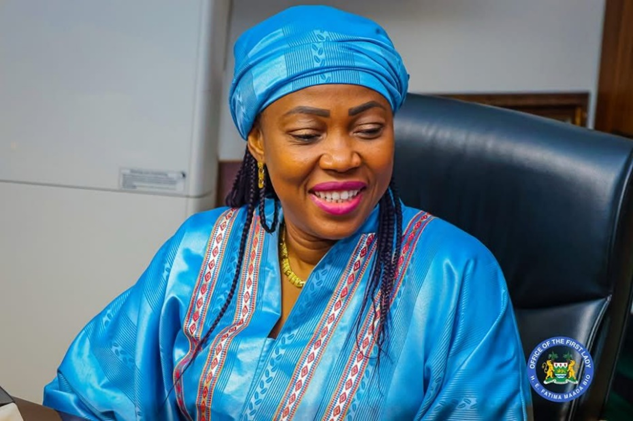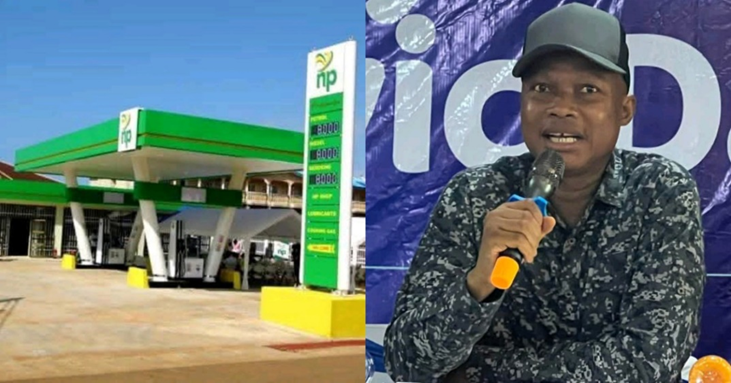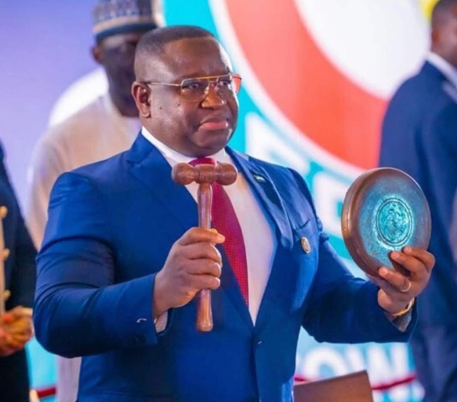By Mackie M. Jalloh
In the evolving landscape of Sierra Leone’s political environment, the role of dialogue and party cohesion has never been more crucial. Against this backdrop, First Lady Dr. Fatima Maada Bio recently hosted senior figures from the Sierra Leone People’s Party (SLPP), including National Officers and members of the Council of Elders, at her Goderich office in Freetown. The meeting was more than a courtesy visit; it became an opportunity to reflect on the party’s democratic culture, strengthen internal bonds, and set the tone for future political engagement.
The First Lady expressed her deep appreciation for the visit, describing it as a timely gesture that underscores the importance of unity within the SLPP. According to her, the ability of the party to maintain dialogue, even in moments of competition and internal contestation, is a clear indication of its maturity and commitment to democratic values.
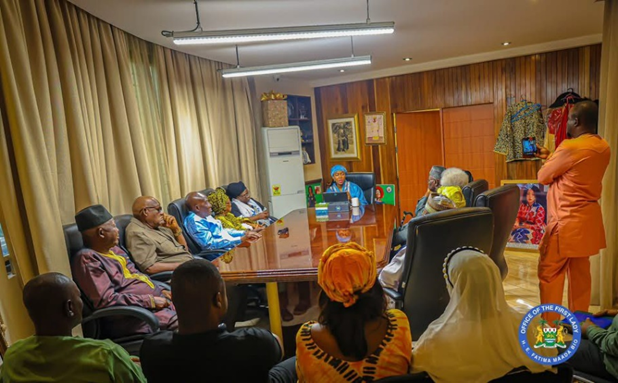
“Healthy competition within a political party should never be mistaken for weakness,” she emphasized. “Instead, it is a sign that our party’s democratic ideals remain strong and vibrant. What truly matters is our ability to unite once any contest is over and move forward together.”
Her words resonated deeply at a time when political analysts argue that intra-party cohesion often determines the strength of governance and electoral performance in Sierra Leone. As the governing party since 2018, the SLPP has faced both internal and external challenges—from leadership ambitions among party stalwarts to increasing scrutiny over governance performance. Yet, the First Lady’s remarks served as a reminder that unity remains the bedrock of political success.
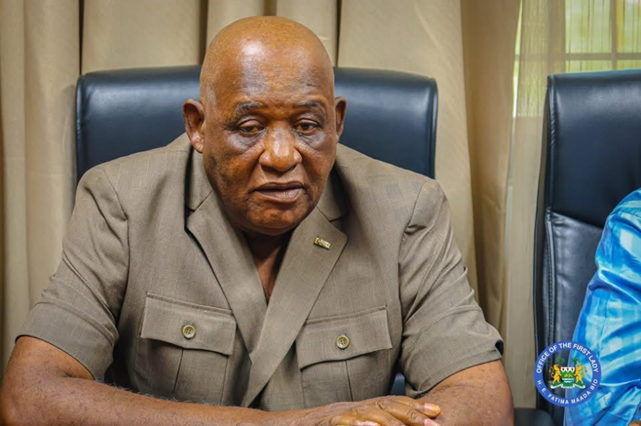
Dr. Fatima Maada Bio reiterated her unwavering allegiance to the SLPP, clarifying that her support goes beyond ceremonial roles. “My commitment to this party is constant,” she declared. “I will always stand behind efforts that keep our party strong, focused, and united.”
Observers say her statement could have broader implications as the party gradually edges toward another election cycle. Internal discussions over leadership, candidate selections, and policy direction are already quietly shaping conversations within the party’s hierarchy. For many, the First Lady’s call for unity signals an understanding that factionalism could undermine the very progress the SLPP has championed since returning to power.
Perhaps the most striking aspect of the meeting was her appeal to the SLPP elders and national officers to renew their commitment to grassroots engagement. She reminded them that the party’s victory in the 2018 elections was not achieved in isolation; it was the result of deliberate community involvement, consistent dialogue, and shared aspirations for national development.
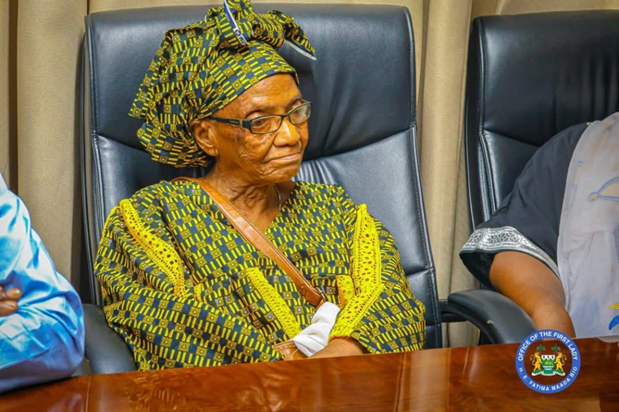
“The foundation of our success lies in the trust and confidence of the ordinary Sierra Leonean,” she noted. “We cannot afford to break that bond. Our responsibility is to listen to the people, address their concerns, and deliver on our promises.”
Her emphasis on grassroots politics reflects a long-standing reality of Sierra Leone’s political system, where community-level mobilization often determines electoral outcomes. In many rural constituencies, political loyalty is built through direct engagement—town hall meetings, local development projects, and constant interaction with traditional leaders. By urging party elders to reconnect with these networks, the First Lady is effectively calling for a return to the basics of political organizing.
While the meeting primarily focused on internal party dynamics, its undertone carried a broader national message. The First Lady linked the SLPP’s strength to Sierra Leone’s democratic and developmental progress, arguing that the two are inseparable. According to her, a divided party cannot effectively govern, and governance failures ultimately affect citizens’ trust in democracy itself.

Political commentators agree that this perspective is timely. With economic pressures, youth unemployment, and governance challenges dominating public discourse, the SLPP’s ability to maintain internal stability could prove decisive in addressing these issues. Unity within the party, therefore, is not just a political necessity but a national imperative.
Another important highlight of the meeting was her recognition of the Council of Elders as custodians of SLPP’s traditions and values. She encouraged them to play a more proactive role in conflict resolution and mentorship within the party. “You are the moral compass of this party,” she told them. “Your guidance is essential in preserving our legacy and shaping the future we all desire.”
Analysts say this is a critical point because political elders in Sierra Leone often act as stabilizers during periods of tension. Their ability to mediate disputes and uphold long-standing party principles can prevent internal rifts from escalating into full-blown crises.
As Sierra Leone approaches the midpoint of its current governance cycle, conversations around succession, policy performance, and political accountability are intensifying. The SLPP, like any governing party, faces the challenge of balancing internal democracy with strategic unity. The First Lady’s intervention can therefore be seen as a preemptive effort to keep these discussions constructive and prevent them from degenerating into factional conflicts.
Her message was clear: unity and grassroots connection are not optional—they are prerequisites for political survival and national progress. Whether the SLPP leadership fully embraces this call remains to be seen, but the meeting at Goderich offered a blueprint for sustaining the party’s relevance in an increasingly competitive political arena.
As the elders and national officers left her office, one thing was evident—the First Lady is positioning herself as not just a supportive figure but as an active voice for dialogue, cohesion, and continuity within Sierra Leone’s political framework.

